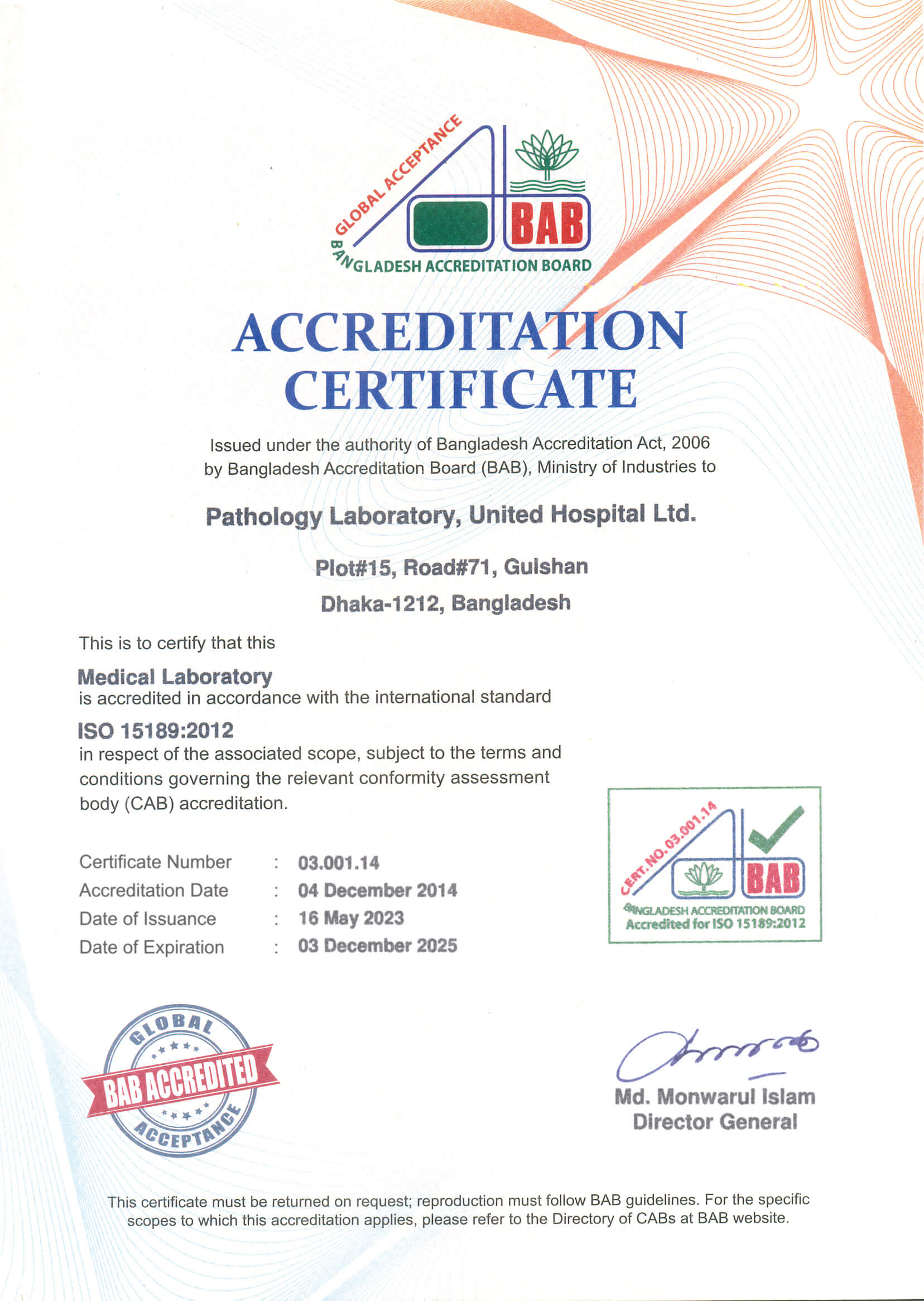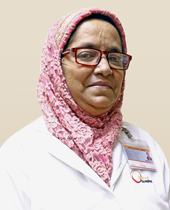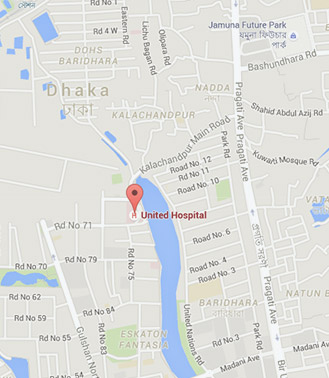The Pathology Laboratory of United Hospital Limited (UHL) went into operation in August 2006 with manpower strength of 24 personnel and only 5 major equipments. Since then, the laboratory expanded continuously and now it is manned by 87 persons and equipped with 27 fully automated equipments performing more than 375 test parameters and on an average 103000 different tests per month. The Pathology Laboratory comprises most disciplines linked to patient care including clinical biochemistry, hematology, clinical microbiology, immunology and histopathology.
The Pathology Laboratory essentially analyzes biological samples for diagnosis, treatment, follow up, drug monitoring and screening. Ideally a laboratory is not only to provide accurate/ acceptable results but also to do so within a reasonable turn around time. The lab follows a good laboratory practice which is not necessarily only to have standard laboratory procedures but to respect ethics and to ensure safety of patients with paramount importance as well as of staff who are involved in the processes.
Appropriately trained and skilled human resources is a key to the successful operation of a clinical laboratory facility. Systems are in place to drive organizational structure and ongoing competency assessment to ensure appropriate accountability and communication during laboratory operation and thereby the quality result for patient care.
All laboratory personnel follow Standard Operating Procedures (SOPs) for the performance of all assigned duties and tasks. Competency assessments are conducted and recorded for all components of the employees functional responsibilities periodically and actions are taken as appropriate. Mechanism to identify gaps & lapses as well as staff development program, on the bench training and continuous education program are in place.
A standard Laboratory Information System (LIS) is present and it is a powerful tool to manage complex processes, ensure timely result and regulatory compliance. LIS is capable of consolidating complex technical processes into a single, compliant platform with comprehensive reporting, surveillance and networking capabilities. The system reduces the pre- & post-analytical mistakes and thus saves man hour. LIS enhances data management and data sharing within the laboratory, across the laboratories and beyond the lab stakeholders in particular.
A technical management team named, Laboratory Management Committee (LMC), is formed with a view to achieve overall improvement of the laboratory and the services thereby. The LMC is composed of laboratory director, clinicians, physicians and laboratory staff. The LMC is a bridge between the laboratory and stakeholders. All matters relating to the laboratory and stakeholders are discussed on the LMC table.
Quality Control (QC) Program
Accuracy and precision of laboratory test results depend on stringent quality control measures. Laboratory results are being generated by automated analyzers and there is a notion that automated analyzers are expected to produce reliable results. In fact, this is not an appropriate notion. In laboratory testing process, there are numerous steps, numerous human involvements, many analytical requirements, reagents etc., and it is inappropriate to rely on this kind of notion. The possible errors or mistakes that can take place in the process of laboratory analysis of biological specimen are pre- & post- analytical avoidable mistakes contributing to >80% errors resulting in non-conformity, non-compliance, unexpected or bad test results. So, quality control is a process where there is a need of compliance by the users, phlebotomists, receptionist and laboratory staff.
The pathology laboratory of United Hospital performs two QC programs
i) Internal Quality Control (IQC)
ii) External Quality Assessment (EQA)
Internal Quality Control
IQC is a set of procedures undertaken by laboratory staff for the continuous monitoring of operations and the results of measurements in order to decide whether results are reliable enough to be released and it is vital to achieve the analytical quality. IQC materials are run once a day and the test results are validated based upon acceptable QC range assigned by the laboratory or manufacturer.
External Quality Assessment
The term EQA is used to describe a method that allows comparison of a laboratory’s testing to a source outside the laboratory. This comparison can be made to the performance of a peer group of laboratories or a reference laboratory.
EQA helps to assure customers such as physicians, patients and health authorities that the laboratory can produce reliable results. Individual laboratories can use EQA to identify problems in laboratory practices, allowing for appropriate corrective actions. EQA participation helps to evaluate reliability of meth-ods, materials, equipment & also to evaluate and monitor training impact. It is mandatory for an accredited laboratory to participate in one of the well defined EQA programs.
Randox International Quality Assessment Scheme (RIQAS) is a program for External Quality Assessment (EQA) organized by Randox. United Hospital signed an agreement with the local representative of Randox on 23 August 2013 for clinical chemistry, immunoassay, hematology, cardiac markers and coagulation screening. More than 3,500 laboratories around the globe are affiliated with the Randox program. After receiving the EQA results, a discussion is held between the director of the pathology laboratory and the quality manager to review the performance. The problem areas are identified and corrective actions are initiated and recorded.
Achievements
The Pathology Laboratory of United Hospital has achieved the ISO 15189:2012 accreditation on 4 December 2014. The laboratory was also awarded with the certificate of acceptable performance for clinical chemistry program (2012-2013) by BIORAD and for cardiac markers, clinical chemistry, immunoassay, hematology and coagulation programs (2013 & 2014) by Randox.
The pathology laboratory of United Hospital is committed to provide prompt, efficient and reliable diagnostic services to the patients by utilizing the best possible human resources, equipment, materials, techniques and laboratory practices. The objective is to make our laboratory a trusted and leading provider of clinical diagnostic services in Bangladesh in terms of test menu offered and quality.




 Dr. Prof. A.F.S.A_WEB.jpg)
-Prof.-Zahid-Mahmud.jpg)

